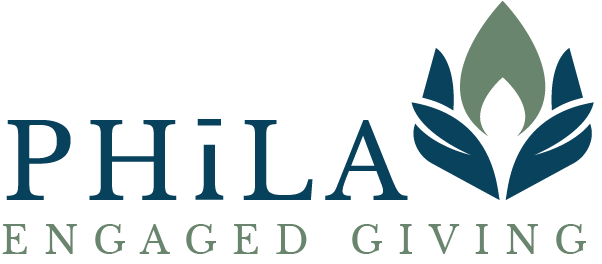By Dilnaz Waraich & Lauren Janus
For many Americans who don’t consider themselves religious, making a gift to a faith-based nonprofit may feel awkward or uncomfortable. Our country has a complex relationship with our faith traditions, and many eschew faith-based giving as part of a pattern of implicit basis informed in part by cultural attitudes, racism and even fear of giving offence.
As philanthropic professionals, we see this all of the time. Often we’ll interact with generous, thoughtful donors who want to give to community-based organizations but stop short of giving to anything “religious.” No conversation needed, let’s move on, please.
As active members of religious faiths ourselves, we see this as a tremendous missed opportunity. In fact, by engaging with each other on how and why we give to faith-based nonprofits, we can change the narrative around the role of faith-based charities in our communities and even dig into our own relational poverty in this country.
Dilnaz and Lauren, how could we do this?, you might ask.
First, let’s explore a few facts about faith-based giving. While religious institutions (mosques, churches, synagogues, etc.) attract a great deal of donations from their members and represent the largest category of giving in the US, faith-based charitable activity doesn’t stop there.
In fact, 40% of social safety net spending in the US comes from faith-inspired nonprofit organizations. These aren’t religious membership organizations; they are food pantries, homeless shelters, addiction treatment facilities and the like. In other words, organizations that are often hyper-local and focused on meeting the immediate needs of especially vulnerable communities.
Giving to organizations like these doesn’t mean you’re helping to convert people to a certain faith. Most of the time, it means that you’re supporting organizations so deeply rooted in the communities they serve that they provide a lifeline for beneficiaries, many of whom have nowhere else to turn.
While members of religious communities do tend to give generously to their own institutions, we also know that they tend to give above-and-beyond to non-religious organizations, too.
For example, even though research on Muslim philanthropy continues to be underfunded, the Muslim Philanthropy Initiative at the Indiana University Lilly Family School of Philanthropy has produced a growing body of research. The 2021 Muslim American Giving Report found that “Muslims also are more likely than the general public to give to non-faith-based civil rights causes (11.87% Muslims versus 5.45% general population)” and that “Muslims contribute 27.45% of their faith-based charity to houses of worship” compared to the non-Muslim average of 51.28%. The report goes on to tell us that “compared to the general population, Muslims have a more positive image of the charitable sector” and are motivated more by compassion than the tax benefits.
What does it look like to give to faith-based charities? Katie Owens Mulcahy, trustee at Owens Foundation in Chicago, is a Catholic faith-based funder learning more about the Muslim traditions. She says:
Being in community with funders and service providers from different faith backgrounds has enriched my own faith practices and challenged me to think about philanthropy as a way to live my faith out loud. Experiencing my first Ramadan Iftar was deeply moving, offering me a firsthand understanding of how sacrifice and self-discipline leads to deeper spiritual connection. For example, when engaging with the Muslim-led nonprofit, the Muslim Civic Coalition, I was struck by the group’s dedication to uplifting all people with compassion, mercy, and justice—values that strongly align with Christian teachings and reinforce my own commitment to philanthropy.
To truly support people—whether physically, emotionally, or spiritually—you must be present and accessible. This is why faith-based organizations are so effective in building trust and fostering genuine relationships. At The Owens Foundation, we rely on these organizations to serve the community because they are deeply rooted within it.
The months of March and April are special this year, because during this period three of our great faith traditions in America–Islam, Judaism and Christianity–all celebrate deeply spiritual holidays through Ramadan, Passover and Easter.
Our hope is that whether you recognize one of these holy periods or not, we as Americans can take the time to reach out and talk with each other about our giving. We can be open to organizations and service delivery methods outside of our comfort zones because they work, and because they do so in a way that reflects our shared wishes and prayers for a more united and cared-for country. We invite you to challenge your implicit biases and get uncomfortable while opening your eyes and heart to the love of mankind, especially when it doesn’t look or sound like you.
***
Dilnaz Waraich is the President of the WF Fund, a national leader in uplifting marginalized communities in education, human services, and religious pluralism. Read more about her.
Lauren Janus is COO and Director at Phīla Engaged Giving. Read more about her.











